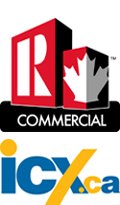How to Win the Commercial Real Estate Acquisitions Game
An investor called the other day and complained, "I've talked to a bunch of brokers, but can't find the deal I want. Can you send me a list of what you have for sale?"
We sent our list and asked the investor what he wanted. He said, "You know, a good deal. Something that makes sense. All I'm seeing out there are opportunities that are either overpriced or gone before I had a shot at them."
If you're an investor, here's some bad news. Investors call our office, make the same requests, get a list of what's on the market and complain about the unavailability of deals. We offer to talk through the requirement, but most say they're happy calling brokers because they'll get access to more deals that way.
Maybe, but aren't you just looking for off-market deals in on-market locations?
Remember, sellers hire brokers to represent them in the sale of their property. They want the advantage of exposure to the largest audience and to sell their property for more than they could on their own, which means when you're calling brokers, you're talking to the people that owners want you to.
Out of our own interest as an owner advisory firm, please keep calling brokers. We encourage it and we like the calls. It makes our owners happy because it proves that we're giving them great exposure and will eventually sell their property for the best price.
There are some investors, however, who refuse to limit themselves to the brokerage world. For those who choose to go off-market, we won't lie to you. It's hard work and it costs money, time, and energy.
One client came to us and required an industrial building in the greater Boston 93/128 interchange market. Out of 50 potential properties in existence, we sourced 6 sites that could be purchased, and the client selected 3 to seriously consider. Of the original 6, 20% were listed for sale by the owner or with a broker, while the rest of the properties were off-market.
The trick to sourcing and winning the acquisitions game is to know what you want, identify where it exists, and then work through the market one commercial property at a time until you find the motivated seller willing to work with you in a transaction. It's not difficult. It just takes time and energy to stick with program until you get the results you need.
Jeremy Cyrier, CCIM believes that actions without meaning are worthless. He is the President of MANSARD, a Massachusetts commercial real estate marketing and brokerage firm and is a member of the CCIM Institute faculty. You may reach Jeremy at Jeremy@Mansardcre.com or at http://www.masscommercialproperties.com.
Article Source: How to Win the Commercial Real Estate Acquisitions Game Read more...


























